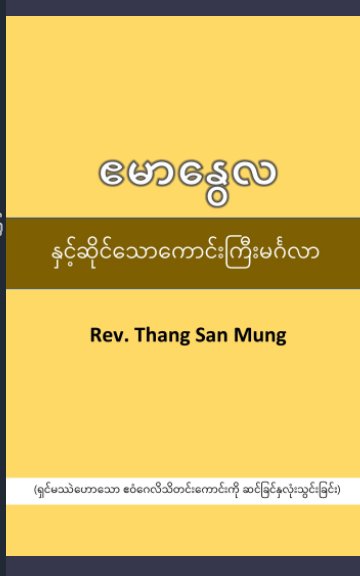1 Ruth 1:1-7, 22
Priority of Life: Life, Bread, and God”
Introduction: There’s a life-question that philosophers ask—“live to eat or eat to live?” Even though we don’t live just to eat, ‘bread/food’ is but a very basic need of life since we’re created this way—to feel hungry and eat. So, deep thinkers would say, “we eat to live.” However, Jesus said to the tempter that “man does not live on bread alone” (cf., Matt. 3:4). Therefore, from a very Christian perspective, God must be in between of this couplet—life and bread. Then, we’ll get this new paradigm—bread for life, but God for bread. For, God is our cheerful bread-Giver! So, what is our life-principle “in God we trust” or “in bread/food/gold we trust”?
Lack of Food and Challenge of Life (vv. 1-2): There’s a big famine in the land of Judah, the territory that God gave to Israel. This devastating starvation did not leave even Bethlehem, called ‘the house of bread’ probably for its rich harvest production in the past. However, the fame and glory of the past can not save the land from this famine. This is a sign from God to call his people back home to Himself, the Giver of their bread, from their lawlessness (cf., v. 1; Judges 21:25). In the midst, there’s a family, not knowing God’s calling voice, planned to flee to Moab, the land of pagan worship and spiritually-unprotected-land, to ease their hardships. As times passed by, their plan of short stay became kind of long settlement in pagan land (vv. 1-2, 4). Where do we find protection in times of crisis—in God or in Moab?
No Better Life in Unprotected Territory (vv. 3-5): In total contrast to their expectation, life in spiritually-unprotected-land, though seems OK at first, ends in death and deep sorrows to the family—first, the death of family-head (v. 3). It’s a first blacken-out of family’s dream that is to make a better life. No better in unprotected land! So, to replace this sorrow and grief, the family planned a merry marriage of the two young sons but to foreigners since there’s no choice. This is man’s best effort to mend his/her defections (v. 4). But, not soon after, the death of two sons followed (v. 5). This is final breakdown of family’s pride and family’s hope. No more except three poor widows in the room was left behind. Only incurable scars and sorrows of life are at the end of man’s strife and struggle. When we miss God in our life, we miss all. Yes, we’ve missed all!
Well-timed Homecoming to God (vv. 6-7, 22): However, there’s another happy end, when the broken family learnt to come home to God on-time. The motivation behind this is [not about the land (native) or the bread (food) anymore but] about God that He visited His people again (v. 6). Naomi and her broken family came back home not to Bethlehem of Judah but to God, the Giver of bread! And there’s a bright hope for this right decision that is that God is giving bread now! Further, what a more surprise to us is that when the family arrived back home, there’s exactly happened the right time for harvest (vv. 7, 22). The time we came home to God is always the very hour we begin to harvest—harvest of joy and peace!
Personal Application:
- There’re more than bread that always frighten us in life-journey. So, what is frightening and even driving us away from ‘trusting in God alone’? Make list of them and read out aloud before God in your private prayer. God knows!
- What kind of attitude, mindset, habit, and practice should I develop in my life that reflects my continual trust in God and His strength?

No comments:
Post a Comment